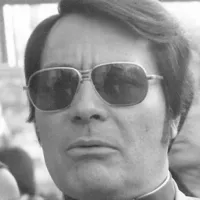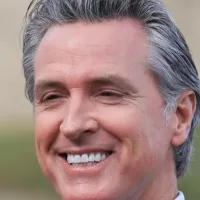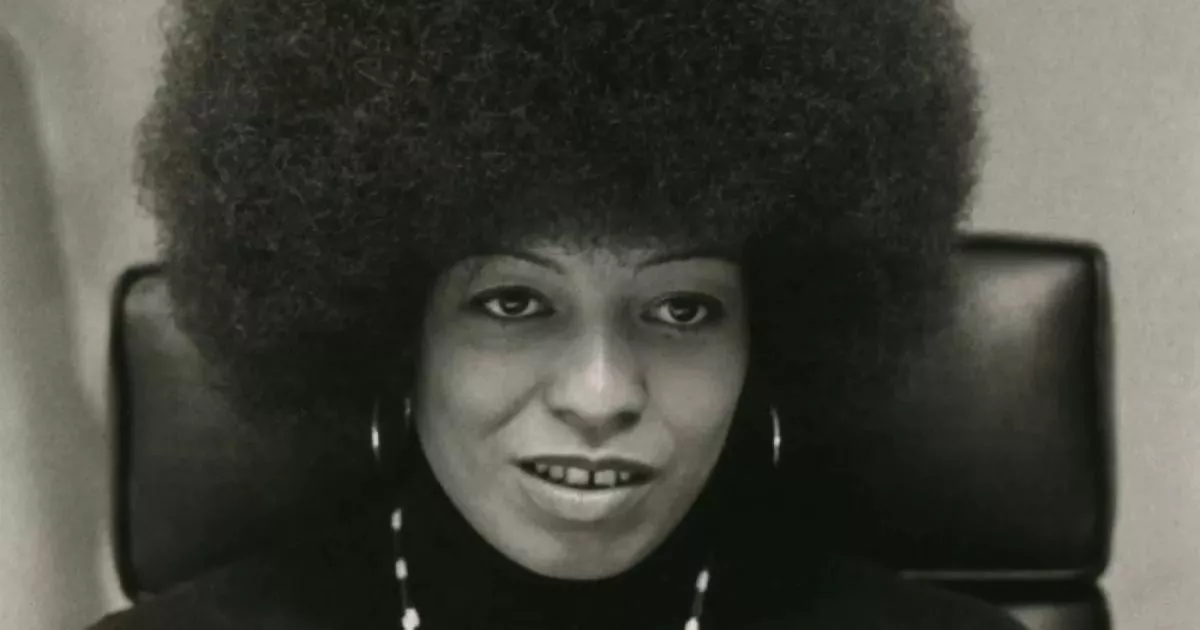A closer look at the most debated and controversial moments involving Angela Davis.
Angela Davis is an American political activist, philosopher, academic, and author known for her work in civil rights and social justice. A former member of the Communist Party USA, she advocates for prison abolition, racial equality, and gender equality. She gained prominence in the 1960s and 70s through her involvement in the Black Panther Party and her own activism. Davis faced criminal charges in connection with a 1970 courtroom shooting, leading to a highly publicized trial and her eventual acquittal. She continues to lecture and write on issues of race, class, and gender, remaining a prominent figure in contemporary social and political discourse.
September 19, 1969: Fired From UCLA
On September 19, 1969, the Board of Regents fired Angela Davis from her position at UCLA due to her membership in the Communist Party, influenced by California Governor Ronald Reagan.
June 20, 1970: Second Firing from UCLA
On June 20, 1970, Angela Davis was fired again from UCLA due to "inflammatory language" used in her speeches. The American Association of University Professors censured the board for this action.
August 7, 1970: Courtroom Takeover in Marin County
On August 7, 1970, Jonathan Jackson took control of a courtroom in Marin County, California, arming black defendants and taking hostages, leading to a shootout with the police.
August 14, 1970: Warrant Issued for Arrest
On August 14, 1970, a warrant was issued for Angela Davis's arrest in connection to the Marin County courtroom takeover. She was charged with aggravated kidnapping and first-degree murder in the death of Judge Harold Haley.
October 13, 1970: Capture by FBI
On October 13, 1970, Angela Davis was found by FBI agents at a Howard Johnson Motor Lodge in New York City after fleeing California as a fugitive. President Richard Nixon congratulated the FBI on capturing "the dangerous terrorist Angela Davis."
1970: Guns Used in Courtroom Takeover
In 1970, guns belonging to Angela Davis were used in an armed takeover of a courtroom in Marin County, California, resulting in four deaths.
1971: Trial for Murder and Kidnapping
In 1971, Angela Davis faced trial for murder and kidnapping, with Margaret Burnham serving as her co-counsel.
1971: CIA estimated Soviet propaganda efforts directed towards Angela Davis campaign
In 1971, the CIA estimated that five percent of Soviet propaganda efforts were directed towards the Angela Davis campaign, showcasing the international attention her case garnered during that time.
January 28, 1972: Garrett Brock Trapnell hijacked TWA Flight 2
On January 28, 1972, Garrett Brock Trapnell hijacked TWA Flight 2. One of his demands was Angela Davis's release, highlighting the high profile of her case at the time.
1972: Jiří Pelikán requested Davis to support Czechoslovakian prisoners
In 1972, Jiří Pelikán wrote an open letter asking Angela Davis to support Czechoslovakian prisoners. Davis refused, stating that "They deserve what they get. Let them remain in prison."
1975: Solzhenitsyn criticized Davis for not supporting prisoners in socialist countries
In 1975, Aleksandr Solzhenitsyn criticized Angela Davis for not supporting prisoners in various socialist countries, given her strong opposition to the U.S. prison system, marking a notable ideological clash.
September 10, 1977: Davis spoke to Peoples Temple members in Jonestown
On September 10, 1977, Angela Davis spoke via amateur radio to members of Jim Jones' Peoples Temple in Jonestown, Guyana, expressing support for their anti-racism efforts and claiming a conspiracy against them during the "Six Day Siege".
February 28, 1978: Davis wrote to President Carter regarding Jonestown
On February 28, 1978, Angela Davis wrote to President Jimmy Carter, asking him not to assist in efforts to retrieve a child from Jonestown, calling Jim Jones "a humanitarian".
1991: Davis left the Communist Party USA
In 1991, Angela Davis left the Communist Party USA, founding the Committees of Correspondence for Democracy and Socialism due to disagreements over the party's support of the 1991 Soviet coup attempt.
1995: Davis opposed the Million Man March
In 1995, Angela Davis opposed the Million Man March, arguing that the exclusion of women promoted male chauvinism.
January 21, 2017: Davis was honorary co-chair of Women's March on Washington
On January 21, 2017, Angela Davis was an honorary co-chair of the Women's March on Washington, held the day after President Donald Trump's inauguration. Her involvement drew criticism.
January 7, 2019: BCRI rescinded Davis's Fred Shuttlesworth Human Rights Award
On January 7, 2019, the Birmingham Civil Rights Institute (BCRI) rescinded Angela Davis's Fred Shuttlesworth Human Rights Award, citing criticism of her support for Palestinian rights. However, on January 25, the BCRI reversed its decision and issued a public apology.
Mentioned in this timeline

Donald John Trump is an American politician media personality and...

Joe Biden is an American politician who served as the...
California is a U S state on the Pacific Coast...

John Lennon was a highly influential English singer-songwriter musician and...

Jim Jones was an American cult leader who founded the...
Nova Scotia is a province in the Maritimes region of...
Trending

49 minutes ago Dewald Brevis Hits Remarkable No-Look Six in T20 World Cup 2026

49 minutes ago Alejandro Tabilo reaches Rio Open Semi-Finals; match delayed to Sunday due to rain.
50 minutes ago Cale Makar's Norris Trophy Reign Challenged by American Defenders in NHL Rankings.
50 minutes ago Mark Scheifele Visits Penticton Vees, Hellebuyck Focuses on Olympics Despite NHL Woes

50 minutes ago Newsom supports age restrictions on social media citing parental experience and teen phone obsession.

50 minutes ago US pays tribute to Johnny and Matthew Gaudreau at the Winter Olympics.
Popular

Jesse Jackson is an American civil rights activist politician and...

Barack Obama the th U S President - was the...

Bernie Sanders is a prominent American politician currently serving as...

Ken Paxton is an American politician and lawyer serving as...

Michael Joseph Jackson the King of Pop was a highly...
WWE Raw a professional wrestling television program by WWE airs...
